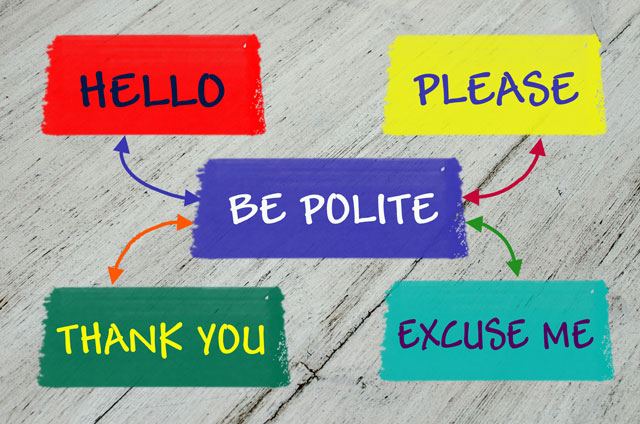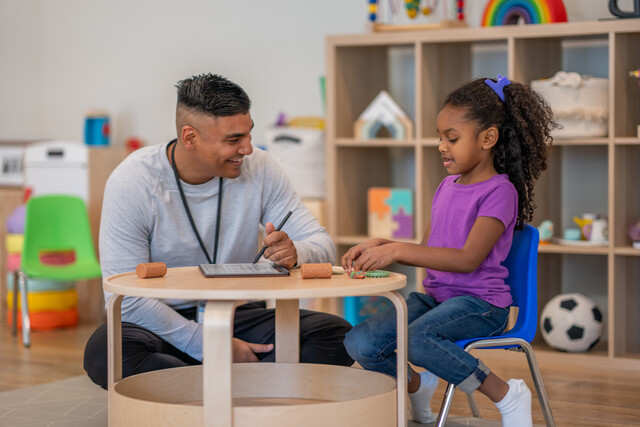Meaningful communication with your teenage child might seem impossible or at least elusive. And considering that many teens merely grunt when their parents ask a question or respond in a language that is better befitting a text message than normal conversation, it is not hard to understand why. Many parents end up hoping their child hears them and then simply retreats to ride the teenage years out not knowing what their child is thinking or feeling. Unfortunately, it is extremely important for parents to maintain open lines of communication with their teenagers. In fact, maintaining open communication may be more important during your child's teen years than it ever has been before. As your child is making decisions every day that may have severe consequences for their future, it is imperative that you create a working dialogue with them, paving the way for them to come to you when serious situations and problems arise.
When it comes to communication, making sure that you and your child are speaking the same language is the first step. Once upon a time, parents merely had to navigate the waters of teenage slang. As time has gone on, technological developments have created a whole new language, especially among teens. Although the particular phrases may change over time, here are a few areas of language you may want to learn more about.
- Acronyms. Few people in the western hemisphere do not know what LOL means. However, you may not be as knowledgeable about other commonly used acronyms. If you are having trouble understanding their language or want to decode their texts, check out urbandictionary.com.
- Slang. Teenage slang is constantly evolving. Although you may feel lost and frustrated when you do not understand what they are saying, know that you are not alone. Many teens themselves are unaware of all the current slang. When your teen says something that you do not understand, ask them to explain it to you. However, after this occurs once, keep a list or try to remember rather than asking again; this will show your teen that you are committed to having effective communication with them.
- Love Language. You may be surprised to find that miscommunication and hurt feelings often occur when parents and children do not speak the same love language. In fact, it is more common for children not to speak the same love language as their parent than it is for them to share that language. Learning your own love language and that of your child can produce astronomical changes in the quality of your relationship and communication. To learn more about love languages (and how it can literally save your relationships) check out the book The 5 Love Languages: The Secret to Love That Lasts by Gary D. Chapman.
Communication Tools
When writing a contract for a teen be as specific as you can possibly be. Clearly outline your expectations, what would define breaking the contract, and what the consequences for breaking the contract would be. Contracts are particularly effective when they relate to privileges rather than basic, everyday rules. Use this example contract as a template if you are unsure about how to create a contract for your child.
Contract Regarding Use of Vehicle
I, (child's name), recognize and acknowledge that use of a vehicle is a privilege granted to me by my parents. As such, it is understood that I am expected to adhere to the rules set forth in this contract in order to enjoy the privilege of using the vehicle.
Terms of the contract
Use of the car for the purpose of social activities is permitted on a case by case basis. The car will be made available for the purposes of work or school functions when notice is given a minimum of one week in advance. For social engagements not planned more than a week in advance, the car may or may not be available and the plans of the parents always supersede the plans of the child.
When the vehicle is used for these purposes, the expectations are as follows.
- The car will be returned with the same amount of gas as it had prior to use.
- The car will be returned in the same condition that it was in prior to use.
- No one other then the teen is permitted to drive the car.
- The car will not be involved in any illegal activities.
- The car will never, under any circumstances, be driven after drinking alcohol or taking any illegal substances.
Consequences of violating this contract are as follows.
- If the car is returned in any condition other then how it was found, (child's name) will be financially responsible for any necessary repairs and will lose driving privileges for a period of time determined by the parents.
- If the car is returned without replenishment of fuel, (child's name) will be expected to refuel the car for one week, regardless of who uses the car; paying for the refueling of the car for the week long period, is the responsibility of (child's name).
- If someone else drives the car, (child's name) will lose driving privileges for social engagements for a period of three months.
- If (child's name) is suspected of engaging in criminal activities while using the car, including driving the car after drinking alcohol or taking illegal substances, it will result in complete termination of any and all car privileges until such a date that parents deem appropriate.
Should the vehicle become unusable or its use is required by another family member, (child's name) acknowledges that the decisions made by the parent are absolute and will not argue with the parent.
If the terms of this contract are violated, the contract becomes null and void and (child's name) will lose all rights to the use of the vehicle until deemed appropriate by parents.
The contract then must be signed by both the child and the parents. Because the contract clearly outlines the expectations of the child as well as the consequences for violating the contract, it establishes very clear communication regarding the issue. It likewise empowers your teen to make conscientious decisions regarding their behavior. Note also, that the consequence for each potential violation is directly related to the violation itself, thus making the consequences natural and fair
.
But for the sake of your parent-child relationship and your child's safety, establish a level of trust where they know that they can come to you when they need to make serious decisions or when they are unsure about potential consequences. Although your natural reaction may be to get upset or angry, hold back your emotions and recognize that your child came to you for help.
As much as you may be disappointed that they have a different value than you have or that they are making choices that you taught them not to make, the simple fact that they are giving you a genuine glimpse into their hearts and minds is extremely important.
Some people say that education is everything. It is advisable to remember that while the importance of education is astronomical, academic success is not the only thing that matters, nor is it the only type of education there is. Over time, American society in particular has come to expect a minimum Bachelor's level degree for virtually any white collar or professional position. These types of positions have traditionally paid better than so called blue collar professions, which usually include more manual labor or technical education. Thus, many parents put a high premium on a traditional liberal arts college degree.
Unfortunately, for those parents, their teens may have very different plans. Liberal arts colleges are not for everyone and it does not necessarily imply a lack of academic ability or inherent intellect. Many intelligent young adults choose to pursue other paths that are a reflection of their interests and passions. Just as a teenager who loves to write will probably want to attend a four year college, a teenager who loves to cook may want to attend a culinary arts school instead. Neither endeavor is inherently more valuable than the other. In fact, you may find it reassuring to know that a college degree has actually become so commonplace that in some instances it no longer gives job candidates a significant enough "edge" to make the time and cost worthwhile. Moreover, many trades can be just as financially rewarding as many white collar jobs.
If you are having trouble motivating your child, invest some time in exploring potential career options for them based on their interests. There are innumerable possible careers available, many of which you (and your teen) may not even know exist. Some people are able to make a living out of modeling for art classes. Others can work as child advocates, becoming forensic interviewers who take the statements of children who have been molested. Some people are able to travel the world, blogging about their experiences and being paid to do so. Still others are able to take their gift for foreign languages and work as a translator for political figures. Few people are genuinely aware of the world of possibilities that await them. If your child seems uninterested in school, help them better identify their interests and map out a plan with them to achieve those goals. Chances are excellent that education, whether it is graduating from high school or with a postdoctoral degree, is going to play an important role.
Working on a high school newspaper or yearbook can provide great opportunities for teens that are passionate about writing or photography. Volunteer groups help mobilize teams of teenage volunteers to make a difference within the community. A film club may produce a picture to be submitted to a festival. Many states have extracurricular competitions beyond those of sports where students can compete in math, science, history, spelling, and so on. Extracurricular activities can be extremely important in helping your teen develop important life skills as well as taking the opportunity to interact with people they might otherwise ignore or never have the chance to get to know.
If you have a teen that is highly averse to participating in extracurricular activities, discuss their reasoning with them. If they have legitimate reasons (such as hobbies or interests for which there is no club at the school), suggest that they start the club. If they are resistant to this idea, consider allowing them to have such a group convene in your home rather than at the school. It is important for your child to learn what it is to be a part of something bigger than they are and that can easily occur in any safe place.



























